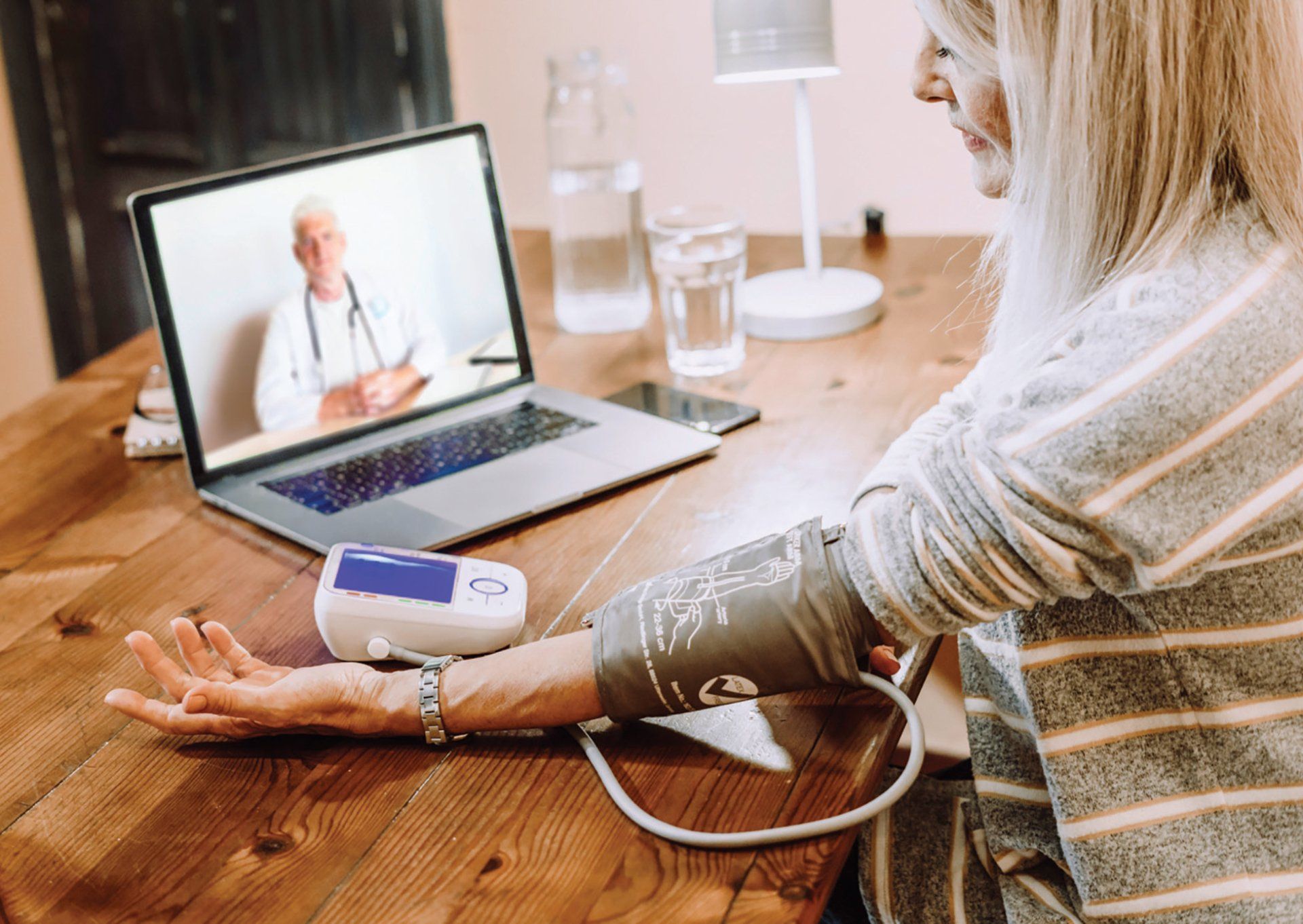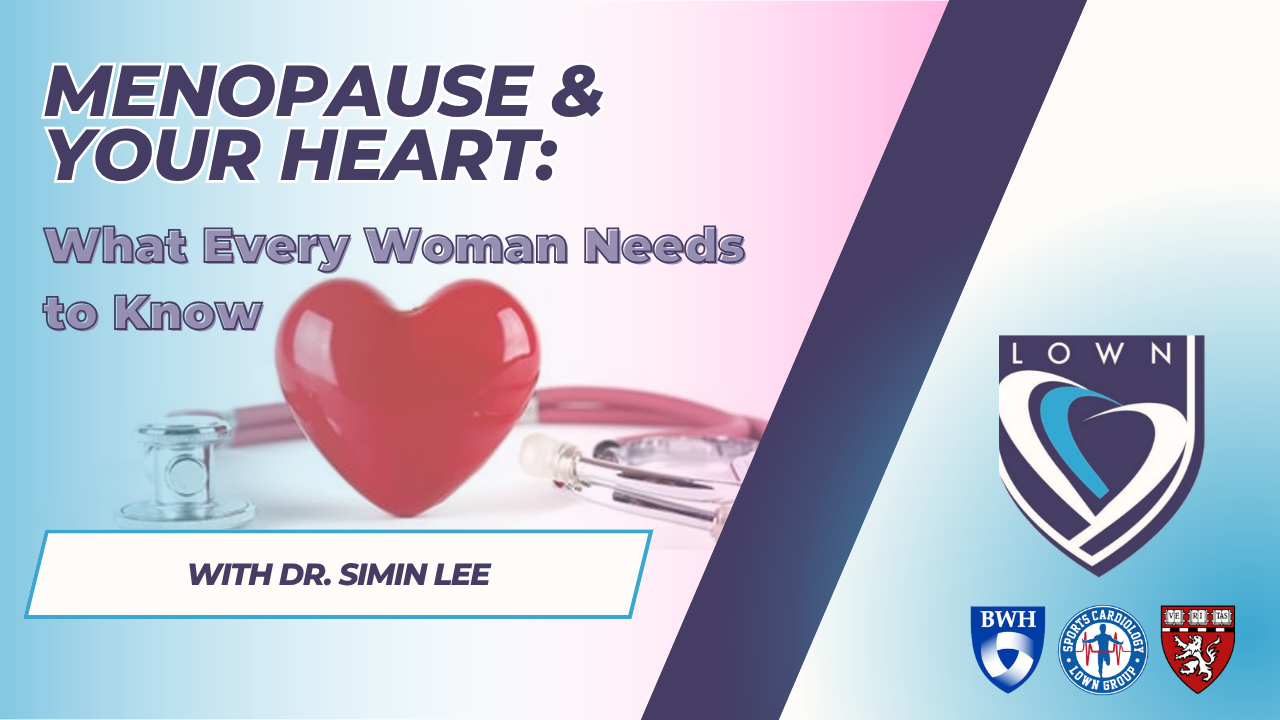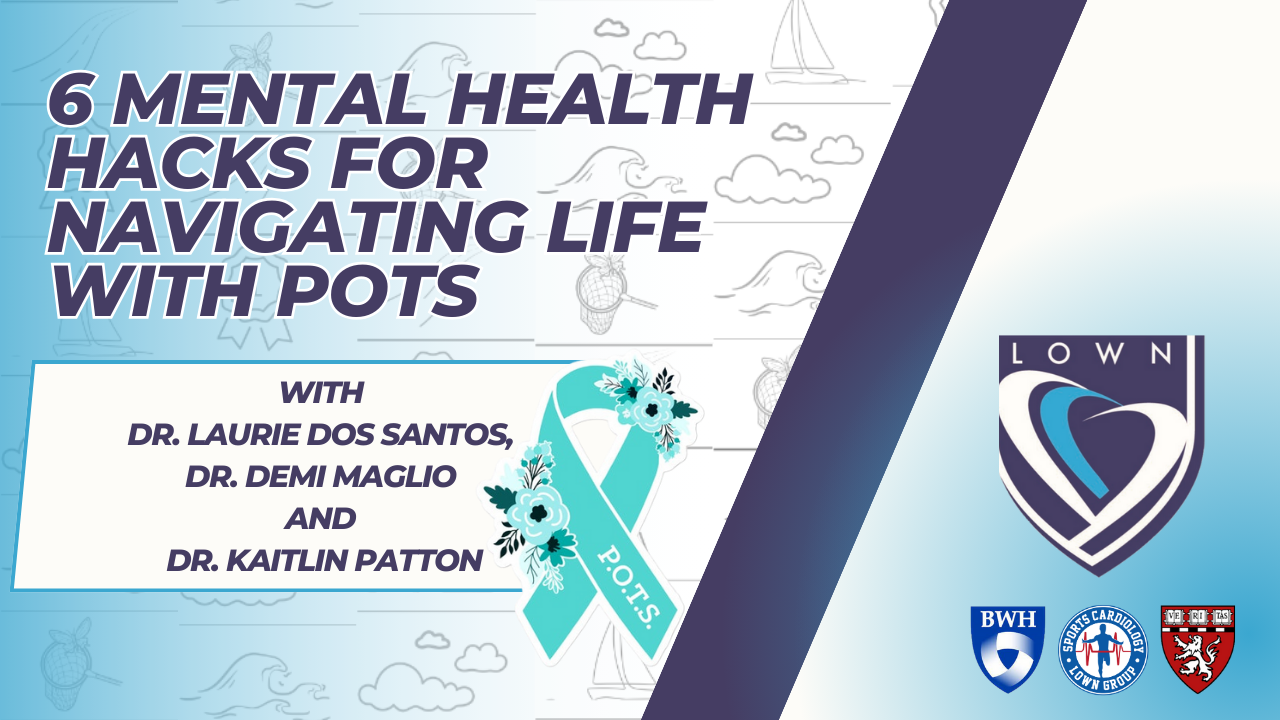Article by Keri Bancroft
Writer, Wellesley Weston Magazine
It happened a couple of times. Cheryl* noticed her heart “fluttering,” which she chalked up to stress. Then one Friday evening, when she and her partner were on their way to see their grandson, she experienced it again. At her partner’s insistence, Cheryl checked the heart monitor on his phone, and it showed her heart rate was about three times as fast as it should be. Concerned, the Wellesley resident called Dr. Rachel Haims, her concierge doctor, on Dr. Haims’ personal cell phone. She answered immediately and asked Cheryl a number of questions to rule out the most serious reasons this could be happening, and then she said something surprising, “Cough as hard as you can.” Cheryl did and her heart rate came down to normal. Dr. Haims had suspected that Cheryl was experiencing Supraventricular Tachycardia (SVT), and this appeared to be confirmed when Cheryl’s cough broke the SVT. Dr. Haims cautioned that Cheryl should call back immediately if there were any other symptoms, such as another episode of a fast heart rate, shortness of breath, or lightheadedness. As a result, Cheryl was able to avoid a trip to the emergency room during the COVID-19 pandemic. The next week, extensive tests confirmed the SVT diagnosis, which is now being treated effectively.
With concierge doctors, like Dr. Haims of PersonalMDs in Chestnut Hill, patients pay an annual fee or retainer to ensure direct availability to a doctor who limits his or her practice to far fewer patients than a traditional doctor.
Concierge doctors have been around since the late ’90s. At first, having one was considered an option only for the super-rich, since these practices had retainers that were astronomical, but over the years that has changed as concierge medicine has become more mainstream. Demand has also increased during the past year as people look for more personalized care during the COVID-19 pandemic.
While this type of medical practice is still most popular with high income clients — with one in five wealthy people choosing “to pay an extra fee for direct access to their doctors” according to NPR’s All Things Considered — it has now become much more available to a larger segment of patients. Dr. Alyson Kelley-Hedgepeth, a concierge cardiologist in the Lown Cardiovascular Group in Chestnut Hill, notes that the cost of concierge medicine has gone down so much that it is now equivalent to going out to eat a couple times a month.
In fact, according to Terry Bauer, CEO of Specialdocs Consultants, a nationwide company that helps physicians set up concierge practices, the average cost for a patient to join a concierge practice — which is usually a primary care practice — across the U.S. is $2,000 annually, or approximately $166 a month. That’s about the same as a cable or cell phone bill, says Bauer. As would be expected, the cost of concierge medicine is higher in the more pricey Boston area than in other parts
of the country, with local costs ranging roughly between $2,000 and $4,500 annually.
Michael* of Weston, who is a patient of the Lown Cardiovascular Group and has congestive heart failure, says, the way he sees it is, “If you’re out of health, you’re out of business. I look at my health care expenses as basic to everything in life.”
So, what do these fees cover? You still have to use your insurance to pay for covered medical expenses. A concierge agreement pays for “noncovered services,” which means you pay for your concierge physician to dramatically limit his or her number of patients to “ensure direct availability and adequate time for each patient,” says Bauer.
This means same-day appointments, significantly longer and comprehensive appointments, and having your physician’s personal cell phone number. Bauer says this model lets doctors “focus on the art of medicine, not cranking patients through. In other words, concierge doctors don’t have one hand on the keyboard and one hand on the door.”
Dr. Geoffrey Burns of Renaissance Family Medicine of Wellesley, who has practiced concierge family medicine for seven years, says there’s no comparison between a concierge and traditional practice. Dr. Burns, who still goes on house calls, says now on an average day he sees six patients as opposed to 15 when he had a traditional practice. He went from having a patient “panel” of 4,000 patients to 300, not uncommon numbers. He notes that seeing fewer patients has allowed him to think instead of acting reflexively and to provide more precision test ordering, instead of cookie-cutter care. “Everything is for the patient’s benefit, not the doctor’s,” Dr. Burns says.
This is also true of Dr. Alan Glaser of Wellesley Primary Care Medicine, who moved from a traditional medical practice to a concierge practice in 2019 and went from 5,000 to 300 patients. Dr. Glaser, who says he researched changing his large practice for seven years, says, “This is not about a yearly fee: It’s about being the best possible primary care doctor. ... It’s the whole reason I went to medical school.”
John,* who has been a patient of Dr. Alan Glaser of Wellesley for 22 years and is now part of his concierge practice, says Dr. Glaser’s availability and responsiveness probably saved his life. A scientist himself, John describes himself as healthy. He doesn’t smoke, he runs, and he is thin. But his dad had strokes in his 60s, the age John was, so he and Dr. Glaser had prepared for a crisis. It hit on an August Sunday morning at 8:30 a.m., when John was experiencing arm and hand weakness, early signs of a stroke. John attributed the weakness to sleeping funny on his arm and said the symptoms had begun hours before. John called Dr. Glaser, who advised John to call 911 immediately. John was rushed to the emergency room. When he arrived, John
started having difficulties with speech and comprehension. The hospital physicians connected with Dr. Glaser on this personal cell phone to discuss the situation. According to Dr. Glaser, they were near the end of the window of treatment for a stroke. Dr. Glaser and the ER doctors decided to give John a powerful drug that ultimately saved his life. “If I hadn’t been able to reach Dr. Glaser directly and get instant attention, I probably would have died.” Dr. Glaser also confirmed that, saying there would “have likely been a different outcome.” Now John says he talks to Dr. Glaser twice a day to constantly monitor his blood pressure.
So what happens to the patients from the traditional practices who no longer have a doctor? Both Dr. Glaser and Dr. Burns made certain that their traditional primary care patients were well cared for by other doctors or existing physicians in their traditional practices.








